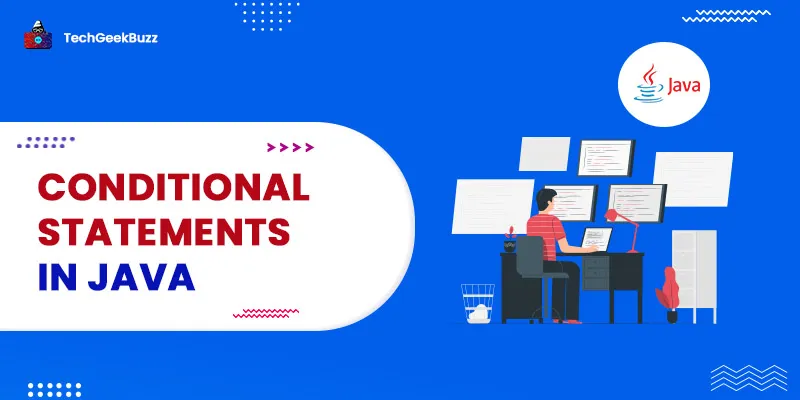Java is a general-purpose, class-based programming language developed by James Goslings in May 1995. Since its inception, Java has been used widely across the globe due to its versatility and features. As per the PYPL (PopularitY of Programming Language) in February 2022, Java stands at the second position in the list of the most popular programming languages.
Primarily, developers use Java as a server-side programming language. It has a wide range of applications, from small desktop and web applications to interactive games, network applications, and enterprise applications. Moreover, cutting-edge technologies, such as the Internet of Things (IoT), cloud computing, and machine learning, also leverage Java.
As a result, skilled Java developers are in great demand these days. Being a Java developer, you require a certain set of skills. If you aspire to become a Java developer and are not aware of the required skillset, this article is for you.
In this article, we shall help you get familiar with the skills required to become a Java developer. But before that, let us discuss who a Java developer is and its roles and responsibilities.
So, let us begin without further ado!
Who is a Java Developer?
A Java developer is an IT professional responsible for designing, developing, and managing Java-based applications. In other words, a Java developer is a computer science professional who leverages the Java programming language for different types of applications.
They often work closely with web designers, web developers, and software engineers to develop fully-functional desktop applications, websites, and many more, in Java that run across a variety of platforms. Since large enterprises primarily leverage Java for software development, the roles and responsibilities of a Java developer vary day to day.
Moreover, Java developers are involved in the entire development life cycle of a particular application, from designing to deployment and maintenance. They craft effective solutions to various business problems by identifying and analyzing them.
Roles and Responsibilities of a Java Developer
The roles and responsibilities of Java developers vary depending on the organization they work with. Following are some of the common roles and responsibilities of every Java developer:
- Designing, developing, and maintaining Java-based applications.
- Involving in all the phases of the software development life cycle ( SDLC ).
- Writing well-structured, clean, testable, and efficient code.
- Analyzing, testing, and debugging software applications.
- Developing and maintaining Java EE applications.
- Ensuring that the software designs adhere to the organization's standards and the client’s specifications.
- Preparing and producing the releases of software components.
- Converting requirements into stipulations.
- Researching new technologies and alternatives to the current technologies being used.
Essential Skills of a Java Developer
As discussed earlier, becoming a Java developer requires a broad range of skills. We have divided these skills into three sections: Basic, Core, and Soft skills. Let us discuss each of these types of skills below.
Basic Java Developer Skills
1. Object-Oriented Programming
Since Java is an object-oriented programming language, it becomes essential for a Java developer to possess expertise in it. Object-oriented programming (OOPs) is a programming principle that makes use of objects where an object can contain data and code.
There are four fundamental concepts of OOPs are as follows:
- Abstraction: It refers to hiding the implementation details from the users and showing only the functionality.
- Inheritance: Inheritance is when one object inherits the properties of another object. The object which inherits the properties is the child object, and the other object is the parent object. The primary objective of inheritance is to enable code reusability.
- Encapsulation: This concept binds data and code together, where data is the form of any field or attribute and code is in the form of methods.
- Polymorphism: The etymology for this word is ‘poly’ means multiple, and ‘morph’ means form. Therefore, polymorphism implies completing one task in multiple ways.
All the aforementioned concepts make Java code readable, increase code stability, and enhance security.
2. System Design and Architecture
Design and architecture are the most critical aspects of any software development process. They form the foundation for any software application. Therefore, it is the responsibility of a Java developer or any other software developer to choose the exemplary architecture and technology stack to implement applications.
As a Java developer, you should have the ability to design scalable and maintainable software products. A proper system design is essential for the following reasons:
- It helps you maintain your software application modularly. This means that you can make changes to your application as and when required effortlessly. For example, if the customer requirements change during the development, you can easily restructure or integrate that module rather than restructuring the entire system design.
- Another advantage of a proper system design is that it boosts the source code's readability. You should design the system so that even if other developers review it, they should easily understand the goal and functions of the system.
3. JVM Internal
JVM stands for Java Virtual Machine, which is responsible for running Java programs. It is a runtime environment that executes Java bytecode. Also, it calls the main method in Java code. Therefore, possessing an in-depth understanding of JVM and its various elements becomes essential for a Java developer.
In addition, you should have profound knowledge of garbage collectors, Just-in-Time (JIT) compilation, and JVM options. With the understanding of these concepts, you can build high-performance and robust Java-based applications. Moreover, you will be able to identify performance bottlenecks, for example, which object of your code consumes a large amount of memory and CPU.
4. Java Build Tools
Build tools are the software programs that help automate the process of bundling an executable application from the source code. Similarly, Java build tools help Java developers automate the development of Java-based applications through their source code.
Hence, it becomes essential for a Java developer to possess knowledge of different Java build tools. The two popular Java build tools in use today are Maven and Gradle.
5. Web Technologies
Web technology is an umbrella term for various techniques and tools used in the communication process of various devices over the internet. Since web development is one of the most popular applications of Java, you should have in-depth knowledge of web technologies.
This is because, as a Java developer, you will have the responsibility of establishing communication between various systems or devices over a network using markup languages.
Furthermore, JavaScript, HTML, and CSS are the core web technologies. Therefore, you should be able to write code in these front-end languages and be familiar with front-end frameworks and libraries.
6. Java Testing Tools
Testing is a crucial phase in the software development process. It is inevitable to test any software application before making it live to the public. As a result, you should have knowledge of using various Java testing tools that help you facilitate the testing process.
A plethora of Java testing tools are available out there that help you plan test activities, generate test scripts, track defects, and analyze the test results. Selenium is one of the most popular and widespread automation testing tools. Some other Java testing tools include:
- TestNG
- JUnit
- Cucumber
- FitNesse
- Mockito
- DBUnit
- Rest Assured
- Arquillian
Core Java Developer Skills
1. Web Frameworks
Java web frameworks are the best solutions to develop mobile applications. These frameworks enable developers to create best-in-class and feature-rich mobile applications with limited code.
Besides mobile applications, Java developers can easily create and deploy web applications on the World Wide Web (WWW) or the internet. Moreover, these web frameworks help Java developers build various web projects, such as web services and web APIs.
The two popular and widely used Java web frameworks are Spring MVC and Play. It is advisable to have knowledge of using these two Java web frameworks as a Java developer.
2. Application Container
A Java application container is simply an application program that runs a specific unit or component or building block of a Java application. These containers are useful in performing various tasks, such as the establishment of database connections, logging, authentication, etc.
Two popular Java application containers are Jetty and JBoss. As a Java developer, you should at least possess a basic understanding of these two application containers.
3. DevOps Tools
DevOps is an approach to the software development process that combines software development and IT operations. This is among the most popular skills among Java developers because DevOps tools help them automate the software process. Some popular DevOps tools include Jenkins, Kubernetes, Docker, Maven, and Chef.
Besides, it is also essential for a Java developer to possess a solid understanding of continuous integration (CI) and continuous development (CD) concepts.
4. Java EE Components
Java EE stands for Java Enterprise Edition. Previously, it was known as J2EE, and currently, we refer to it as Jakarta EE. It is a Java platform that provides developers with enterprise features, such as web services and distributed systems. Java developers primarily use these components for creating server-side applications.
Moreover, Java developers face the challenge of handling requests from web-based clients. To overcome this challenge, Java EE components come in handy. Some significant Java EE components include Java Beans, Servlets, and JavaServer Pages (JSP).
5. Principles of SOLID
SOLID is an acronym for five class-design principles of Java, as follows:
- Single Responsibility Principle: This principle states that each class should be responsible for a single functionality of the application.
- Open-Closed Principle: It states that software components should be open for extension and not for modifications.
- Liskov Substitution Principle: This principle states that it should be possible to replace the objects of the superclass with the objects of its subclass without breaking the software application.
- Interface Segregation Principle: It states that if a client does not use a specific method, there should be no force on them to use it.
- Dependency Inversion Principle: It states that high-level modules of the software application should not depend on low-level modules. Both high and low-level modules should depend on abstractions.
These SOLID principles are very much beneficial because they:
- Increase the readability of the source code.
- Ease the process of debugging.
- Allow developers to extend the functionality of the software application at any point in the development.
- Facilitate refactoring.
As the SOLID principles provide a lot of benefits, it becomes essential for a Java developer to master them.
6. Code Version Control
Version control, sometimes referred to as source control, is the process of tracking and controlling the changes made to the source code of software applications. Today, multiple version control systems (VCS) are available in the market that help developers manage and control source code changes over time.
As a result, it becomes necessary for Java developers and also other developers to have hands-on experience working with VCS. Popular version control systems are GitHub, GitLab, BitBucket, and BeanStalk.
Soft Skills for a Java Developer
Along with technical skills, becoming a Java developer also requires you to possess soft skills. The following are the soft skills for Java developers:
1. Team Work
It specifies the collective effort of a team to accomplish a particular task. Since Java developers need to work with software developers, web designers, and web developers, they have to work in a team to complete the task in the given time with high quality.
If any of the team members lag behind, it will indirectly affect the work of other members. Therefore, as a Java developer, you should be a team player and work effectively and efficiently to reach a common goal.
2. Good Communication Skill
Good communication skill is yet another mandatory skill that Java developers should possess. As a Java developer, you should have the ability to listen to others and comprehend others’ views. Since communication is the primary aspect while working in a team, and Java developers primarily work with the IT team, good communication skills become necessary.
Also, your audience should understand what message you are trying to convey to them regarding the product. If the target audience does not have a clear idea about the end product, they are not likely to use it.
3. Ready to Learn New Things
We know that technology keeps evolving, and it becomes necessary for developers to learn many things. Java developers need to keep themselves updated with the new technologies so that they can improve the process of software development. If you aspire to become a Java developer, you should always be ready to learn and adapt to new things or technologies.
4. Interpersonal Skills
Interpersonal skills are essential for any working professional. They refer to the ability to interact with others. The better your interpersonal skills are, the better the growth in your career.
Conclusion
This was all about the skills that every Java developer should possess. Along with the core technical skills, including web frameworks, web technologies, build tools, testing tools, and version control systems, a Java developer should also hold soft skills.
Apart from the skills mentioned above, you also require a bachelor’s degree in computer science. Further, you can also think of pursuing a Java certification that demonstrates your Java skills to potential employers.
If you possess a bachelor’s degree and wish to earn a Java certification, check out the list of the Top Java Certifications .
We hope you found this article interesting and helpful.
Good Luck!
People are also reading:




